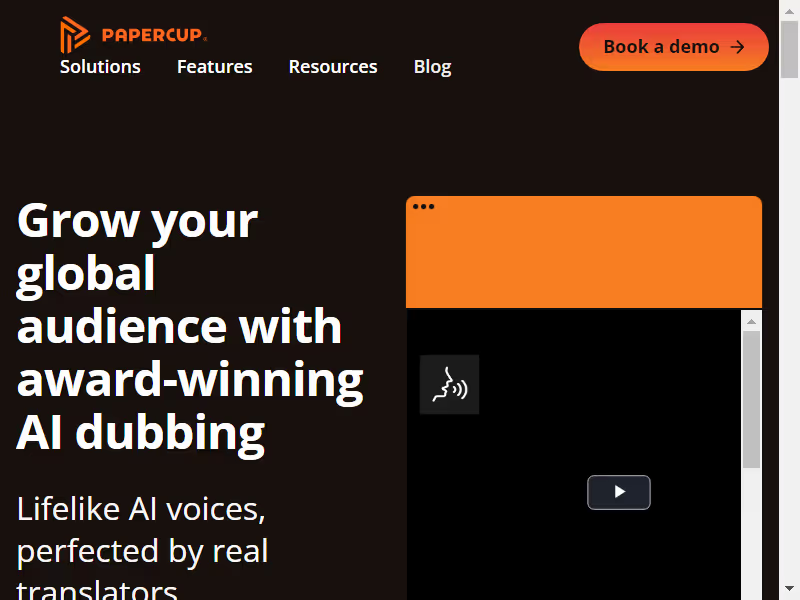
We envision a world where language is no longer a barrier to information and entertainment. By harnessing advanced AI technologies, we are redefining how video content is experienced globally, making it universally accessible through seamless, natural-sounding dubbing in multiple languages.
Our mission is to transform media distribution and consumption by automating the complex process of video localization. Through sophisticated voice cloning and speech recognition, we empower creators and organizations to share stories, education, and culture with unprecedented speed and authenticity.
At the core of our work lies a commitment to innovation and impact, building a future where every video, regardless of language, can find its audience anywhere in the world with the power of AI-driven voice synthesis and dubbing technology.
Our Review
We've been tracking Papercup since they emerged from London's AI scene in 2017, and honestly, they've caught our attention for all the right reasons. This isn't just another startup throwing around buzzwords — they're tackling a real problem that's been bugging content creators for years.
Here's the thing: 99.9% of videos exist in only one language. That's a staggering waste of potential reach, especially when you consider how hungry global audiences are for quality content.
The Tech That Actually Works
What impressed us most about Papercup is how they've cracked the voice cloning puzzle. Their AI doesn't just translate words — it captures the nuance and personality of the original speaker. We've seen demos where the dubbed version sounds so natural, you'd swear it was the same person speaking multiple languages.
The secret sauce combines automatic speech recognition, neural networks, and synthetic speech generation. It's the kind of tech stack that sounds complex but delivers results that feel effortless.
Follow the Money
When we see $30.7 million in funding and a recent acquisition by RWS, it tells us investors believe in more than just the concept. The fact that RWS specifically wanted Papercup's IP to power their "next-generation AI dubbing solutions" speaks volumes about the quality of what they've built.
From 38 employees to 167 in just a few years? That's the kind of growth that happens when you're solving a real problem well.
Who Should Care
Media companies are the obvious winners here, but we're excited about the broader implications. Educational content creators can finally reach global classrooms without breaking their budgets on traditional dubbing. YouTube creators can tap into non-English speaking markets without hiring voice actors.
If you're creating video content and wondering why your international views are stuck in single digits, Papercup might be the unlock you've been looking for. It's not magic, but it's pretty close.
Feature
AI-powered automatic video dubbing
Voice cloning technology
Neural network-based automatic speech recognition (ASR)
Synthetic speech generation for natural human-like audio
Multilingual video localization for global reach








